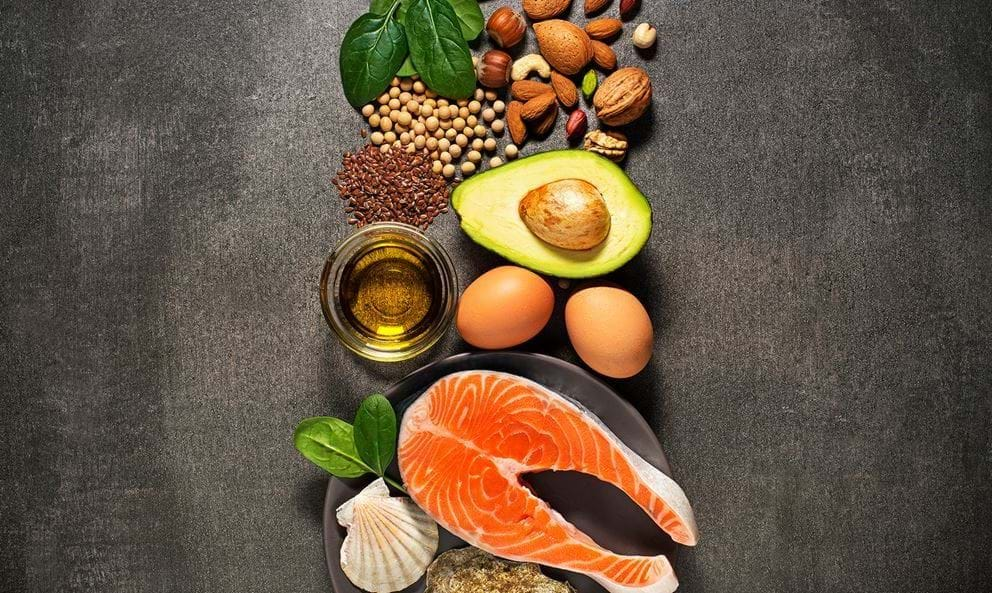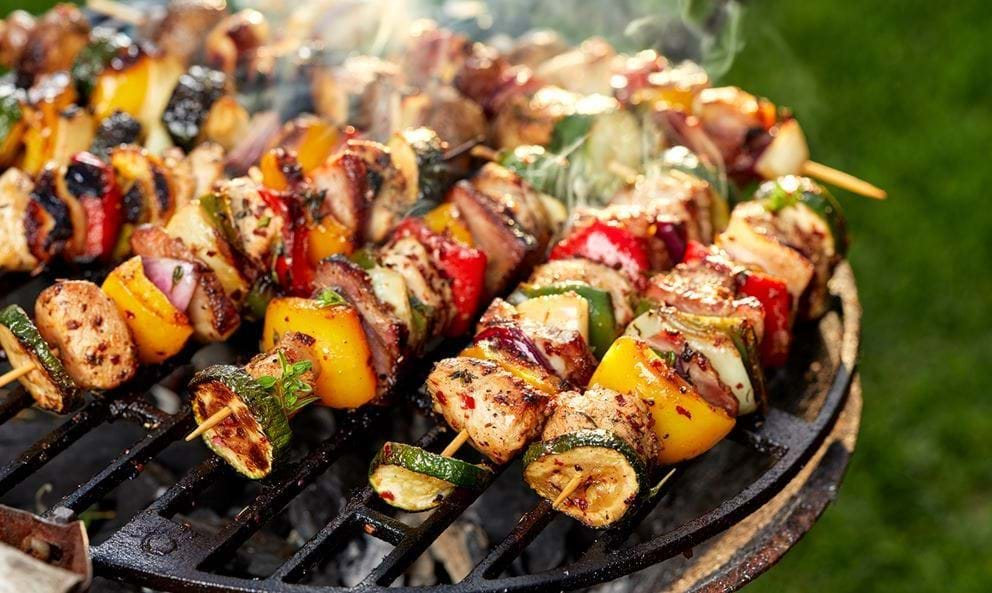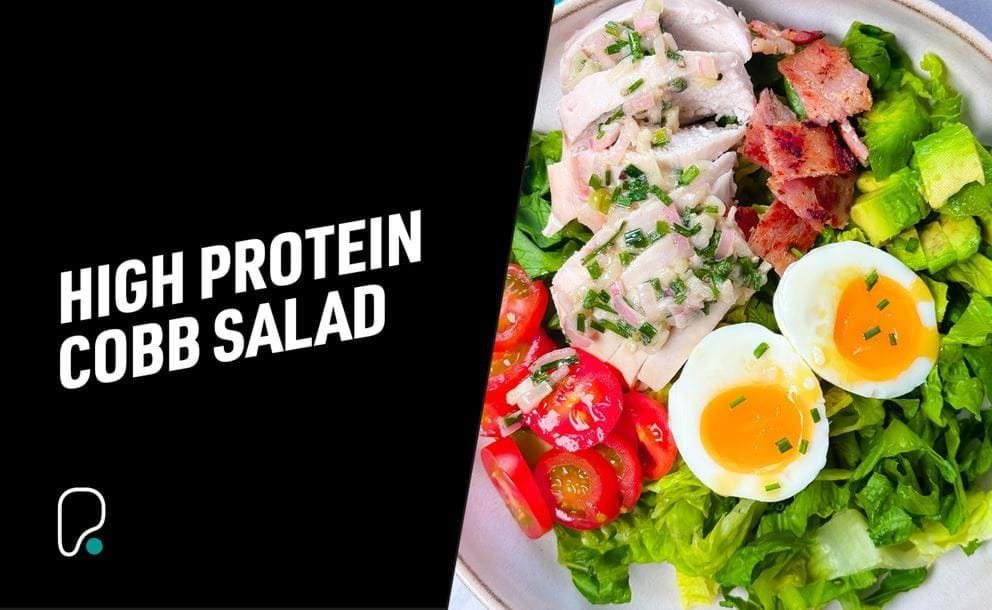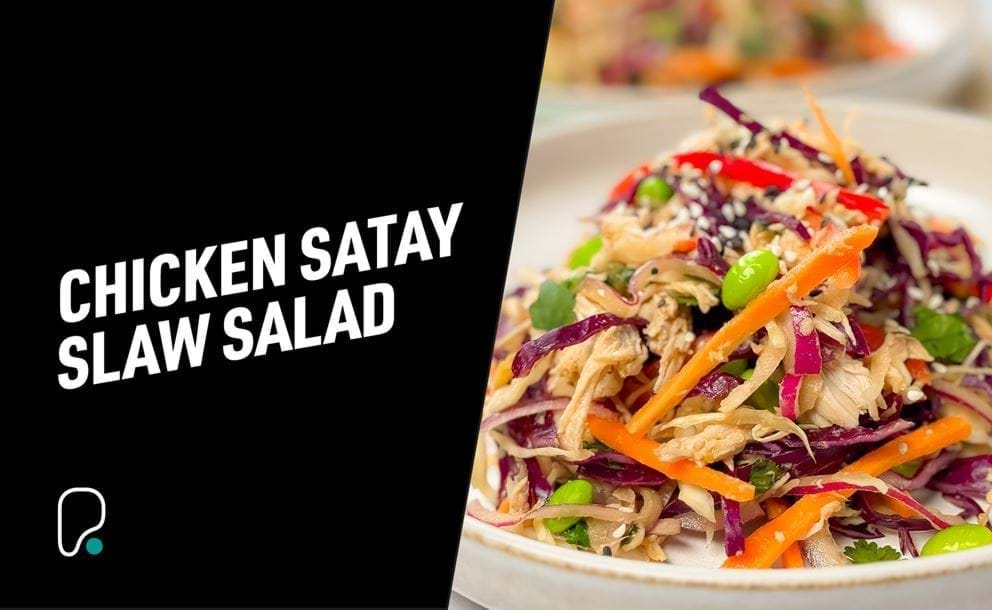How to meal prep for the week


PureGym Leeds City Centre North Personal Trainer, Wai Yip, shares her top tips on stepping up your meal prep game.
Meal prepping is all the rage, and for good reason: it saves time and money, while helping you stick to your healthy eating habits, it's as delicious as you make it (pre-packed sandwiches for lunch? I'll pass, thanks.) and it helps to keep hanger at bay (hunger + angry = hangry). Yet, if you've thought about embracing this healthy eating habit, only to be derailed once you realise the time and effort - not to mention all the plastic containers involved - I don't blame you.
Luckily, meal prepping doesn't have to be a daylong logistical nightmare, full of dirty dishes, spilled quinoa and mismatched food storage containers. Want to prep like the best of them? Follow these tips that I've used and cultivated to help me with my goals - so it's fair to say they've been trailed and tested!
1. MAKE TIME
For meal prep to work, you have to actually find time to cook! Sunday works the best for most people for obvious reasons; it's closest to Monday to keep your food fresh throughout the week, and it's a weekend so you have time off. Even if you don't have much time on Sunday (you'll need 2-3 hours), just getting the shopping out of the way or getting the prep out of the way will still save you time during the week. But if you don't happen to have time on the weekend, make Monday night your shopping and/or prep night. You can also split up your meal prep into a Sunday night and Wednesday night cooking session.
2. KNOW YOUR PROBLEM AREA(S)
You don't need to prep every single thing you're going to eat all week - just focus on the meals you struggle most with. If making dinner is a breeze for you, but you struggle with breakfast or snacks, spend your time prepping things that will help make those times easier. Like overnight oats or an omelette for breakfast, or some hard-boiled eggs, yoghurt and berries, and carrots for snacks.
3. INVEST IN FOOD STORAGE CONTAINERS
A small investment in food containers of various sizes to suit your needs will make a WORLD of difference, trust me! It's a good idea to choose one container type and buy several that stack and store neatly. If you choose plastic containers, make sure they are BPA-free and that they won't melt in the microwave or dishwasher. Sturdy glass dishes with lids are also great as are Mason jars. If you decide to go all-in on the meal prep lifestyle, you might want to think about getting an insulated bag to carry your meals everywhere you go.
4. DOUBLE UP
If you want to make full recipes to eat throughout the week, go through your cookbooks and pick recipes that make large batches or choose ones that you can double. Even if a recipe is intended for one serving, just doubling or tripling it will allow you to cook it once and eat for a week. This also saves time washing up multiple times!
5. FIND INGREDIENT OVERLAPS
When picking recipes for meal prep, try grouping them by overlapping ingredients. If you need to make rice one night for a chicken curry dish, you can use it later in the week for chilli con carne. Spinach can be used in a salad or in the filling of lasagne. You get the idea.
6. STOCK UP ON PANTRY STAPLES
These are the ingredients you will use over and over again. Think things like beans, seeds, rice and grains. Usually these ingredients can be purchased in bulk, so you may find it works out cheaper to buy them this way. You can also purchase other ingredients that are in season, like fruit and vegetables, and freeze them. Canned proteins, like tuna, salmon and legumes can also be stored in your pantry (or in desk drawers at work if you have the space!). These sources of protein can be quickly added to a salad, sandwich or a wrap to help keep your tummy happy. Perfect for meal prep when it's too hot to cook, or when you sleep in and need to put lunch together quickly!
7. PREPARE INGREDIENTS INSTEAD OF FULL MEALS
Don't love the idea of eating the same prepped meal every day of the week? Bore off! Let's prep formulas rather than full-blown recipes. It can be challenging to set aside time each week to prep meals and snacks for the week ahead, so instead, prep ingredients that can be used in a variety of meals so you aren't stuck eating the same leftovers day after day. Plan to have a complex carb, a lean protein, and sliced fruit and veggies on hand. Using these staples, you can combine the food groups to create a balanced plate.
8. MIX IT UP
If you can't fathom eating the same thing two days in a row, plan on making two or three different dishes that you can alternate or mix-and-match throughout the week. With the right planning and creativity, you can make the same food go a long way. By just making different sauces, already prepped chicken and vegetables can be an Asian stir-fry one-night, Mexican chicken fajitas the next and Italian chicken cacciatore another.
9. ACCOUNT FOR SNACK TIME
My favourite 'S' word! We're often so busy making sure our meals are taken care of that we forget about the hours in-between, during which we're bound to get hungry... Instead of undoing all your healthy meal prep effort by snacking on junk, prep items that can be used in both meals and snacks. For example, roast or grill a batch of vegetables, which can be eaten as a snack along with hummus, tossed in a salad, or chopped up in tomato sauce for pasta. Or, make a dip, like fruit salsa or baba ghanoush, which can be enjoyed with wedges or dollop on top of grilled fish or chicken. It's all about efficiency!
10. MAKE A LIST
Once you know how many meals you're making and what you're making, use your recipes to write a detailed shopping list with specific numbers, weights and measurements. Sounds obvious, but making a list will help you avoid unhealthy impulse buys - ever noticed the offers in supermarkets are usually deepest on junk food? And chocolate bars and crisps at the till when you're just about to leave? STICK TO THE LIST! Also, knowing what you're cooking in advance will prevent you from ordering sodium and calorie filled takeout fest or bingeing on whatever's in the kitchen when dinnertime comes around. Keep in mind to look through your pantry and fridge before heading out the door to see if you already have some things you need. Another supermarket tip: DON'T grocery shop when hungry. Even a list won't save you.
11. MAKE FRIENDS WITH YOUR FREEZER
Know which foods you can freeze with ease, these include slow cooker meals, cooked rice, pre-cooked chicken, chilli and soups. In addition to making your life easier, freezing meals also prevents them from going bad and having to be thrown out, so you're saving more money and being less wasteful at the same time.
There's nothing wrong with frozen veg and frozen fruit as they are just, if not, more nutritious than fresh as they are frozen soon after being picked.
12. MULTITASK AND LOOK FOR SHORTCUTS
Prepping several different foods can feel overwhelming if you're not used to it. But instead of tackling the items on your to-do list one by one, it's all about multitasking so that you don't feel like you're spending your entire day in the kitchen.
Start with what takes longest, such as roasting vegetables. Pre-heat the oven, chop and season your veggies, and put them in the oven first. While those are cooking, move onto the stove where you can take care of boiling eggs or making a batch of quinoa. Having a few things going at once cuts down time.
13. CHOP CHOP
Wash, chop, and prepare most of your veggies for the week---whether they're going to be left raw or used in a cooked dish and store them in airtight containers. You're more likely to eat and cook them if they're cut and ready to go. Store each vegetable in an individual container so when it comes time to cook, all you have to do it grab the ones you want and get to work. They're also great to have on hand to snack on when you get hungry. There are a few exceptions, though. For example, slicing strawberries ahead of time is a mistake because oxidation devalues some of their nutrition, and an herb like mint is best chopped immediately before using.
14. CHOOSE SIMPLE MEALS AND SNACKS
Remember: meal prep is supposed to make it easier for you to eat healthy! So, don't get bogged down with trying to find new recipes to try every week (unless you want to, of course!). A few key meals that you can rotate through can make preparing meals so much easier AND it doesn't have to be boring.
Make chicken and vegetables more interesting by adding different herbs and spices. Try different dips, like hummus, beetroot dip or tzatziki, and dip slices of veggies into it for a snack! If you have a slow cooker, use it to make delicious stews or soups that you can portion and store to use during the week.
15. EMBRACE YOUR FREEDOM
Meal prepping isn't just about eating healthy or improving the look of your body; it's about FREEDOM. When meal prepping for days in advance, you are free from having to make any sort of decision regarding what to eat for that time. You don't have to determine where or when you'll get food, you just have it. This saves psychic resources that can be put towards doing other things that are important to you, like focusing on relationships, a career, your work or training. You no longer have to make decisions about food or focus on it; it's been taken care of, now work and play and be free of the burden of hunger and the decision-making process that comes with it!
Now let's get meal prepping!
Get healthy meals delivered to your door
We've partnered with Musclefood to help you give your nutrition a boost with their weekly meal solutions. Choose from their wide range of breakfast, lunch, dinner, and snacks options, and they'll be delivered straight to your door, so you can spend more time focusing on your workouts and less time worrying about your food shop. Click here to find out more.


